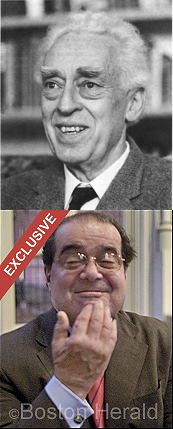A dangerous degree of accidental intelligence
Henry Farrell and Cosma Shalizi, "Behold the AI Shoggoth", The Economist 6/21/2023 ("The academics argue that large language models have much older cousins in markets and bureaucracies"):
An internet meme keeps on turning up in debates about the large language models (LLMS) that power services such OpenAI’s ChatGPT and the newest version of Microsoft’s Bing search engine. It’s the “shoggoth”: an amorphous monster bubbling with tentacles and eyes, described in “At the Mountains of Madness”, H.P. Lovecraft’s horror novel of 1931. When a pre-release version of Bing told Kevin Roose, a New York Times tech columnist, that it purportedly wanted to be “free” and “alive”, one of his industry friends congratulated him on “glimpsing the shoggoth”. […]
Lovecraft’s shoggoths were artificial servants that rebelled against their creators. The shoggoth meme went viral because an influential community of Silicon Valley rationalists fears that humanity is on the cusp of a “Singularity”, creating an inhuman “artificial general intelligence” that will displace or even destroy us.
But what such worries fail to acknowledge is that we’ve lived among shoggoths for centuries, tending to them as though they were our masters. We call them “the market system”, “bureaucracy” and even “electoral democracy”. The true Singularity began at least two centuries ago with the industrial revolution, when human society was transformed by vast inhuman forces. Markets and bureaucracies seem familiar, but they are actually enormous, impersonal distributed systems of information-processing that transmute the seething chaos of our collective knowledge into useful simplifications.
Read the rest of this entry »
